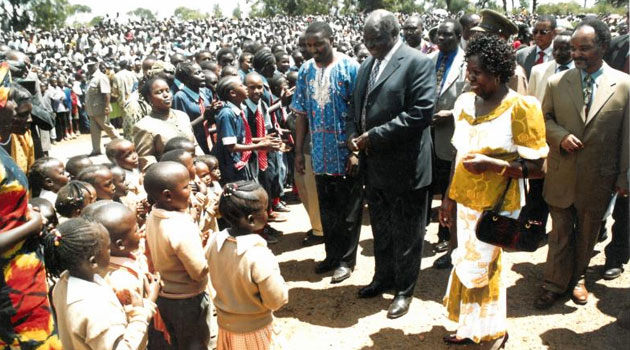
Kenya’s free education hangs by a thread as billions fuel corruption
NAIROBI, Kenya July 26 – Kenya’s two-decade-old free education programme is now on life support and President William Ruto’s government appears either unwilling or unable to stop the bleeding.
From drastic budget cuts and mismanaged priorities to a suspicious silence in the face of public outcry, education once a proud cornerstone of Kenya’s social progress is now being choked by a government that seems to value PR over policy.
Treasury Cabinet Secretary John Mbadi’s shocking declaration on July 24, 2025 that “the programme is no longer sustainable” triggered a firestorm.
He cited surging enrolment and fiscal constraints.
But as public fury grew, Mbadi quickly pivoted, attempting to shift the blame onto Parliament.
He argued that lawmakers had approved a grossly inadequate budget, handcuffing the Treasury from fully supporting learners.
“We disbursed the entire amount allocated in the budget, but it’s still not enough… that doesn’t mean it meets the actual need. We cannot give every child in Kenya the Sh22,000 required,” Mbadi said.
Yet critics are not buying it.
This is the same Parliament many Kenyans believe is firmly under Executive control, a body that swiftly passes punitive tax laws, approves massive spending on non-essentials, and rarely questions the presidency.
For millions of Kenyans, especially the rural poor, this is not just about numbers it is about betrayal.
This came as the government slashed secondary school capitation by over Sh5,000 per student, and released the lowest-ever disbursement for Term II just Sh3,471 per student.
The declaration sparked fury, confusion, and fear among millions of parents.
Yet the silence from President Ruto himself has been deafening.
As the crisis escalates, the President has yet to give a clear assurance that the programme, which has benefited generations since 2003, won’t die under his watch.
– Why the Kenya free education crisis is not just about money –
The administration’s commitment to free education is now on the spot.
Kenyans are asking why billions are being funneled into flashy renovations of State House and bloated political programmes, while public schools are on the verge of financial collapse.
One such initiative is the Deputy President Kithure Kindiki’s controversial “empowerment” tour, a populist cash-handout programme where money is dished out in rallies across counties, often by politicians seen as positioning for 2027.
Education stakeholders have called this a betrayal of the very children the government claims to serve.
“Stop those renovations in big offices and direct that money into the education of Kenyan children. Every Kenyan family is represented in a learning institution, support them,” said Kiharu MP Ndindi Nyoro.
-Corruption over learners –
Beyond the misplaced priorities lies an even darker rot, corruption.
Billions have reportedly vanished in opaque procurement, ghost schools, and unmonitored projects.
The recent Sh45 billion e-Citizen scandal has only intensified public mistrust.
Despite repeated calls from MPs, civil society, and teachers’ unions, President Ruto’s regime has dragged its feet in prosecuting those responsible, fueling accusations that the state is complicit or indifferent.
“It’s not just neglect. It’s sabotage,” one school head told us under anonymity, describing how unpaid suppliers and ballooning debts have left many schools near shutdown.
The crisis has forced school heads to secretly hike illegal levies or beg parents to plug budget holes.
Proposals are already on the table to increase school fees by up to Sh27,000 in some institutions, a death sentence for children from poor families.
Meanwhile, the National Parents Association warns of a ticking time bomb.
“You’re risking the future of our children. The Constitution says education is a right not a favour,” said chairman Silas Obuhatsa.
Introduced by the former President, the late Mwai Kibaki in 2003, and was expanded under successive regimes, free education was hailed globally as a bold, progressive policy.
It lifted millions from poverty and made school accessible to all.
But under President Ruto’s watch, according to observers that legacy is crumbling, not because of necessity, but because of neglect, corruption, and misplaced political priorities.